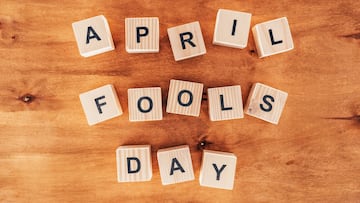The curious origins of April Fools’ Day
The centuries-old festival of jokes has its roots in much more mundane circumstances concerning religious doctrine and a switching of calendars.


April Fools’ Day: the time to be inundated with fake news stories, from things such as a celebrity having to play a football match in goal or the supposed re-release of some decades old models. The custom has existed for a long time, harkening back to ancient festivals like Hilaria in Ancient Rome.
References to April Fools’ existence, though not one we would recognize, are in literary texts as long ago as 1392. It is unknown when pranks and jokes began to be a central part of the day, but they are likely a 20th century invention. As far back as 1957 the BBC ran a bulletin on spaghetti-growing trees in Switzerland. Viewers, unaware of it being a prank, were left confused at such a strange story.
Where does ‘April Fools’ come from?
It is thought that the custom comes from 16th century France. The Edict of Roussillon, promulgated by French King Charles IX, announced that January 1 would be the new beginning of the calendar. Easter was the old beginning of the year, but due to its moveable date was not a good choice for beginning a calendar. The 1563 Council of Trent, initiated by the Pope to counter the spreading of the Protestant heresy, made it clear that Catholicism would need to adapt to the changing religious landscape of Europe, hence the logical change.
Those who were unaware of the change to the calendar were said to be dubbed “April fools”, as they were still following the old calendar’s dates.
The translation of April fools is of course different in languages that aren’t English. In French speaking countries, the festival is known as poisson d’avril or ‘April fish’. This usually entails the pinning of paper fish to people’s backs and clothes.
On est le 1er Avril !
— UBALDI (@ubaldi) April 1, 2022
Et aujourd’hui, c’est le jour idéal pour faire une blague à son entourage.. 😃
Quel a été votre meilleur poisson d’Avril ? 🐟#poissondavril pic.twitter.com/j2RtHUSDDp
Are there other similar days around the world?
Many nations have similar traditions on April 1, though it may have a different name. However, in Spanish-speaking countries the festivity is on December 27, 28 or 29 and is called the Día de los Santos Inocentes. The day is supposed to celebrate the first Christian martyrs; the children executed by King Herod.
Dressed in assorted military garb and wearing sashes, dozens of revelers known as ‘Els Enfarinats’ staged a mock, messy coup in the small Spanish town of Ibi, hurling flour and eggs pic.twitter.com/AFO2b9NX6k
— Reuters (@Reuters) December 29, 2022
One of the most famous Spanish traditions on the day of the innocents is Els Enfarinats, meaning ’the breaded ones’ in English. Participants dress up in mock military gear then proceed to throw flour at one another.
Related stories
Get your game on! Whether you’re into NFL touchdowns, NBA buzzer-beaters, world-class soccer goals, or MLB home runs, our app has it all.
Dive into live coverage, expert insights, breaking news, exclusive videos, and more – plus, stay updated on the latest in current affairs and entertainment. Download now for all-access coverage, right at your fingertips – anytime, anywhere.
Complete your personal details to comment